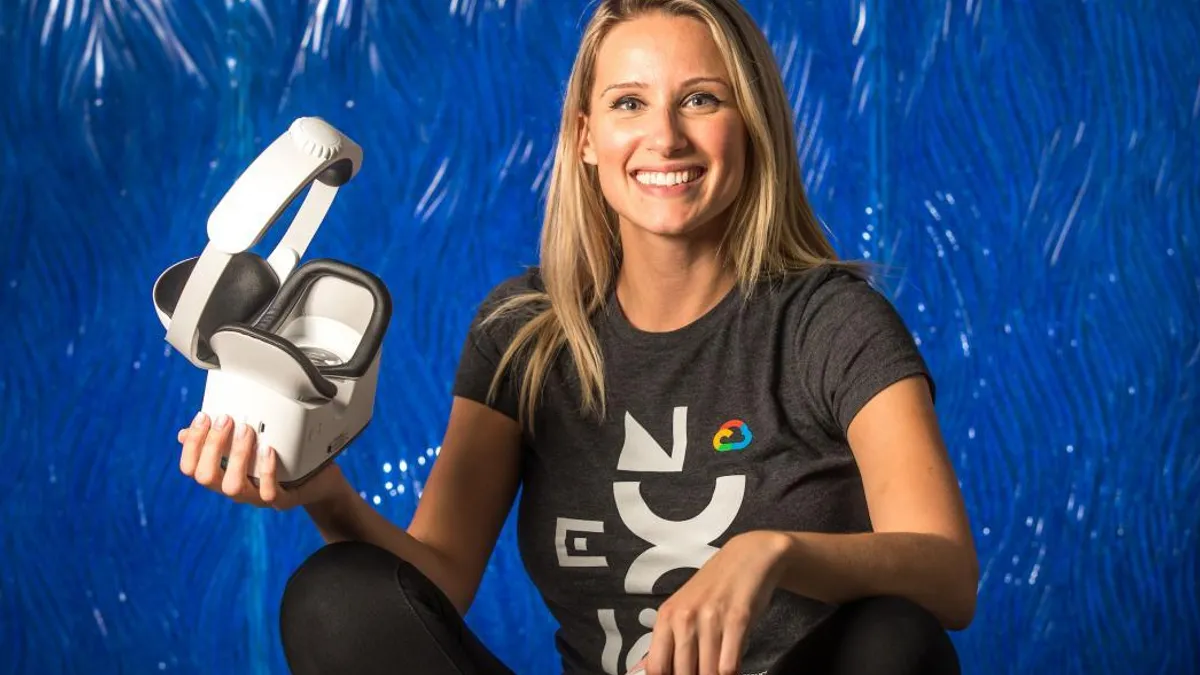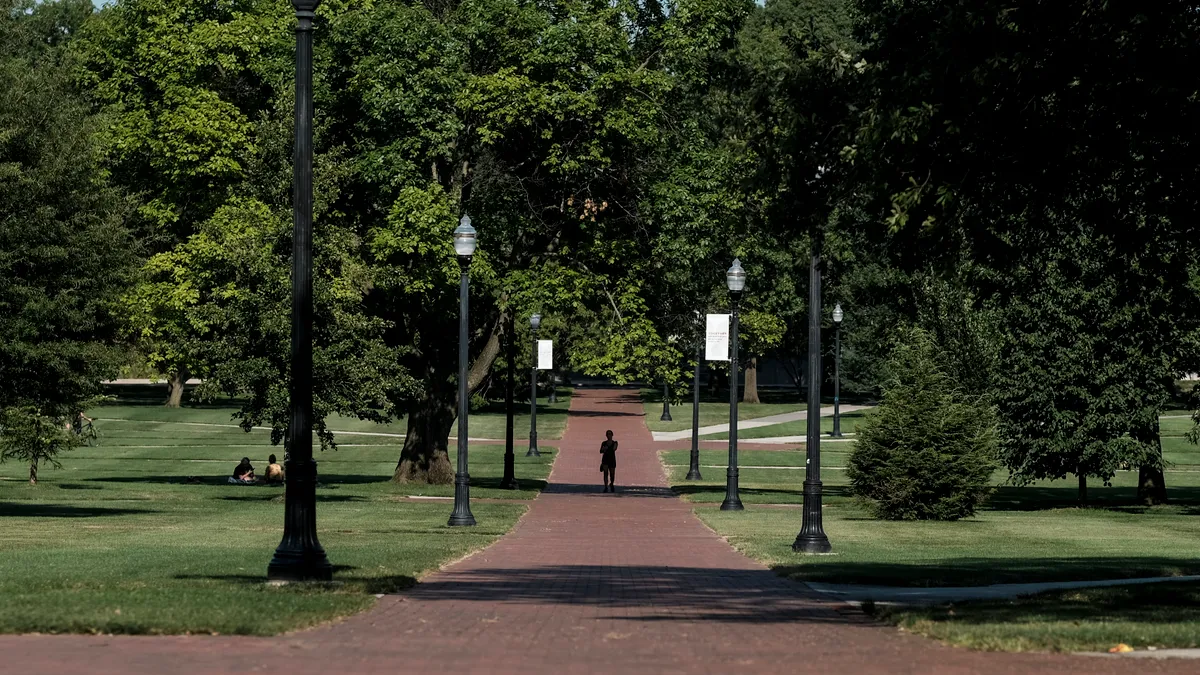Dive Brief:
- Thirty students registered for Arizona State University Online's general biology course are using ASU-supplied virtual reality (VR) headsets for a variety of required lab exercises, according to Campus Technology. When new classes start in October, the university will make 140 headsets available and will launch an online-only biology degree program.
- The VR equipment, which costs ASU $399 per student, allows learners to complete lab assignments in virtual space using goggles and a controller to maneuver around a simulated lab. Content for the online course was developed and assessed by ASU biology professors and was evaluated this summer. Students also can use their own VR headsets and access the content on their laptops, as 370 other students are doing.
- A university official told Campus Technology the initiative will help online students have the experiences provided in brick-and-mortar labs as well as new ones that were impossible previously. The effort also will ease a problem on campus with limited lab space.
Dive Insight:
Similar labs are planned for the University of Texas at San Antonio and McMaster University in Canada, according to a blog post from Google, which partnered with the ed-tech company Labster to create the virtual labs. In addition, virtual labs also are available at eight community colleges in California, offering IT and cybersecurity skills instruction. The labs are being tested this academic year with the idea of expanding them to other California colleges.
About half of colleges have space dedicated to VR, with adoption expected to increase as technology costs go down, according to a recent survey by nonprofit consortium Internet2. The survey found that 18% of institutions have "fully deployed" VR and are increasingly making it available to online students, while half are testing or have not yet deployed the technology.
Colleges are using VR for a variety of purposes, from classroom instruction to admissions recruiting to career training. It also is being developed to create virtual stacks of library resources and allow students to take virtual field trips to study art and archeology. Healthcare training often can be accomplished easily and more cheaply with VR, and even law schools are using it.
With online collaboration expected to grow considerably in the workplace, experts say experience with the related technologies can be helpful to students in their careers. They note that often online students simply don't have the benefit of learning soft skills that employers want, but VR may provide those opportunities. In addition, because the use of VR is growing in K–12 education, students will expect to use it in college.
Going forward, universities and colleges, especially those struggling with declining tuition dollars and state support, will have to continue to weigh the cost of VR technology and its benefits to students online and on campus.
Photo by Charlie Leight/ASU Now












